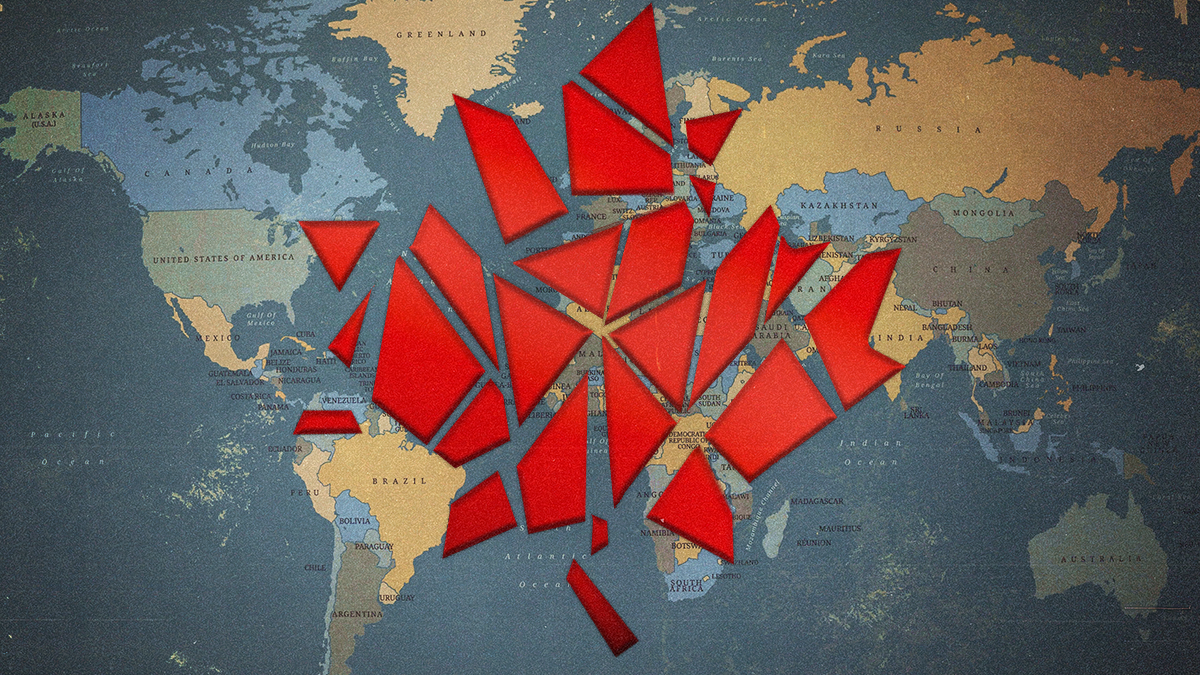Protected by three oceans and the hegemony of the United States, Canadian foreign policy has long been shaped by geographical accident and proximity to power. The trade-off has been that while Canada doesn’t have great power preoccupations it remains stuck within the orbit of its most important ally, the US, which does.
But now, the Canadian government is facing a series of foreign policy challenges that put it in an awkward position. Ottawa suddenly needs to clarify its goals and refine its tactics. Can it?
Earlier this week, after years of mixed-results attempts to get closer with India as part of its Indo-Pacific trade and relationship-building strategy, Canada accused India of playing a part in the murder of a Canadian citizen on Canadian soil – Sikh activist Hardeep Singh Nijjar.
While Canada’s closest allies, particularly the United States, denounced the murder and called for India to cooperate in an investigation, neither the U.S., nor the U.K. or Australia seem willing to risk their relationship with India over the affair, particularly as Western powers court New Delhi as a crucial counterweight to China. The episode reveals a lot about the challenges, and weaknesses, of Canada’s foreign policy.
Job One: Staying close to the U.S.
Over the past century, Canada has fought along the US in every major American war except Vietnam and the 2003 invasion of Iraq. As an essential security partner in several relationships, including Nato and Norad, Canada has largely kept in step with U.S. geopolitical goals and objectives.
The Trudeau government has also, importantly, sided with the U.S. in Washington’s rivalry with China, even when that has produced major political headaches at home. The 2018 arrest of Huawei executive Meng Wanzhou in Vancouver – at Washington’s request – led to Beijing kidnapping two Canadians in China. While the affair was eventually settled, it damaged Sino-Canadian relations.
More recently, after pressure from opposition parties, the Trudeau government launched a full public inquiry into foreign interference in Canada’s democracy, with China, among others, targeted as a major culprit.
Since Russia’s invasion of Ukraine, Canada has backed Kyiv with cash, training, and arms. In June, Trudeau announced a CAD$500 million fund for military assistance to the country, and this week committed $33 million worth air defenses. All told, Canada has spent $8 billion as part of its pro-Ukrainian efforts. On Friday, Ukrainian president Zelensky will speak to the Canadian Parliament.
Still, despite all of this, Canada’s Nato allies, particularly the U.S., have long complained that Ottawa underspends on its military, coming up short of the alliance’s target of 2 percent of GDP. Canada, for its part, argues the 2 percent target is less important than making critical investments such as the purchase of F-35 jets and investment in NORAD upgrades.
Canada has also, on occasion, found itself decidedly on the outs with its major allies. When the U.S. launched a new security partnership with Australia and the United Kingdom (AUKUS) last year, Canada was sidelined. While Ottawa has expressed interest in playing a role in AUKUS, the White House says there is no plan to invite Canada into the partnership. Ostensibly, Canada has been left out because it has no intention of investing in nuclear submarines, which are a central pillar of the AUKUS strategy.
Under-planned and under-resourced.
What are Canada’s strategic goals, and is there a coherent plan for achieving them? Experts are skeptical.
Graeme Thompson, senior analyst at Eurasia Group says “Canada’s foreign policy seems to be very much disjointed,” which is to say “There isn’t an overarching strategic framework.”
Canada hasn’t published a National Security Strategy, for example, since 2004. Nor has it undertaken a formal Foreign Policy Review. Without a conceptual anchor like that, Canada’s foreign policy is unmoored. The country has lost two separate bids for a rotating seat on the UN Security council over the past 15 years.
That lack of coherent strategy, according to Thompson, is the consequence of two problems. First, Canadian political leaders struggle to prioritize issues and regions, and second, they don’t adequately fund a truly global approach. So, Canada ends up spreading itself too thin to exercise significant influence on the global stage, which leads it to overpromise and under-deliver.
Attempting to cover nearly every region of the globe, he says, Canada is trying to balance trade relationships, embassy and consulate presences, security and defence commitments, development assistance, and leadership on environment, climate change and human rights.
No wonder there isn’t enough money – not to mention time, attention, and human resources – to go around.
Problems coming home to roost.
Years of subpar Canadian foreign policy are now catching up with the Trudeau government. The return of great power rivalries, fresh external meddling in Canada’s diasporas and elections, and some unusual – if small – cracks in the US-Canada alliance are now forcing Ottawa to develop a more robust foreign policy than it is used to having.
Can it manage? Canada may be a middle power, but it shouldn’t have a middling foreign policy.



















